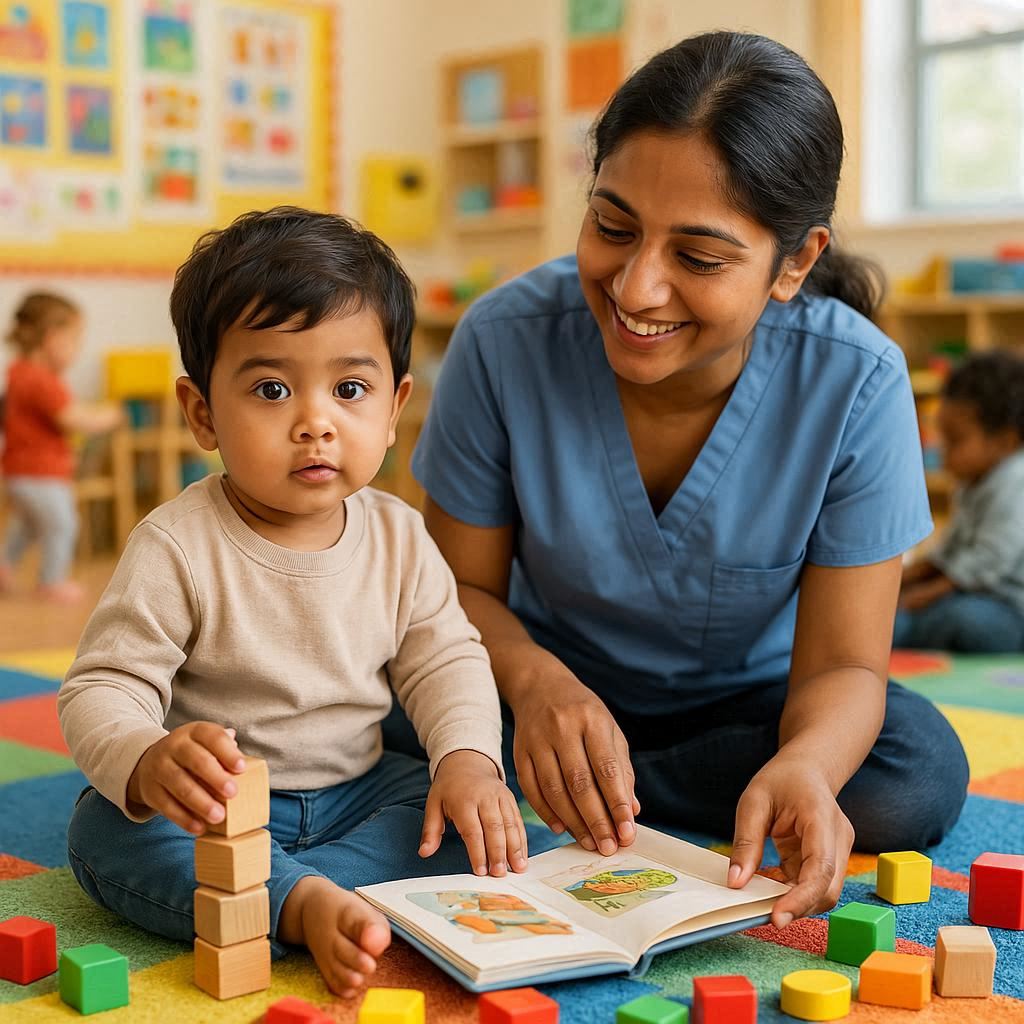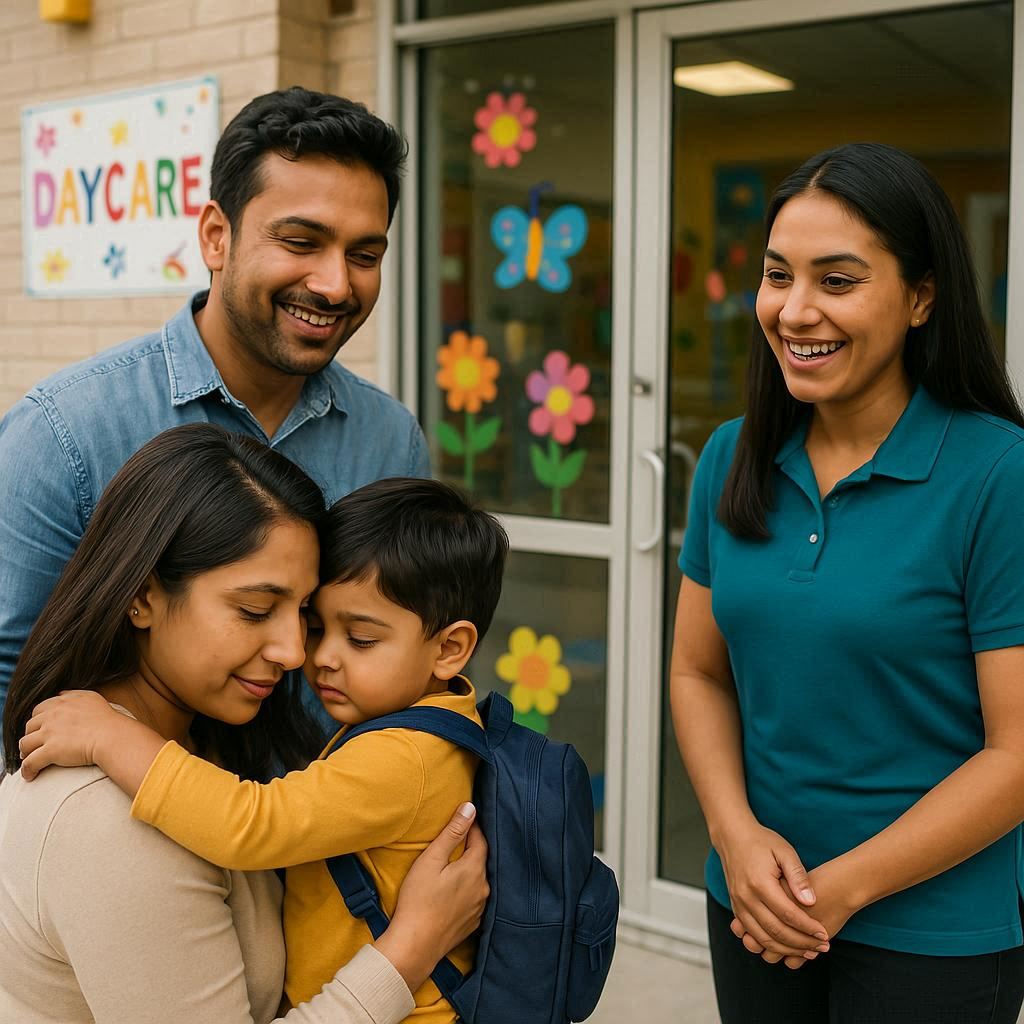When it comes to raising children, parents often find themselves facing the dilemma of whether or not to send their little one to daycare. The truth is, daycare isn’t inherently “good” or “bad.” It’s simply one of many ways children can be cared for, and its success depends on several important factors — the type of daycare chosen, the quality of care provided, and the strength of the parent-child bond at home.
Upward International Preschool & DayCare -Preschool in Thane West plays a major role in shaping a child’s daycare experience, and at Upward International Preschool & DayCare, we prioritise emotional comfort, gentle transitions, and a nurturing routine that helps children feel happy and secure from day one.

What Does “High-Quality Daycare” Really Mean?
High-quality care is not about fancy infrastructure, expensive toys, or organic snacks. Instead, it is about the quality of human interactions children experience every day. Caregivers who talk, sing, and read to children, who respond promptly to their needs for comfort, feeding, and diapering, and who create opportunities for safe exploration and play are what truly make a daycare nurturing and effective. A stimulating environment, adequate space, and thoughtfully planned activities all contribute to helping children feel secure and motivated to learn.
A Community of Care
The old saying, “It takes a village to raise a child,” continues to hold true today. Historically, child-rearing was always a shared responsibility within families and communities. Daycare facilities, at their best, function as an extension of that community — a loving and supportive environment where children are cared for by adults who genuinely want to see them grow and thrive. Parents who view daycare as part of this extended “village” often find it easier to trust the process and focus on building strong connections with their children at home.
Letting Go of Guilt
One of the most common struggles parents face when considering daycare is guilt. Many worry they are not spending enough time with their children or fear judgment from others. However, research shows that what truly matters is not the number of hours parents spend with their children but the quality of those moments. A loving, engaged, and present parent can provide deep emotional security, even if the child spends part of the day in daycare. Letting go of guilt allows families to embrace daycare as a positive choice rather than a compromise.
Benefits of Daycare
Experts in child development and early learning consistently point to several clear benefits of daycare for children and families:
- Early learning opportunities: Daycare often introduces children to structured activities that build early literacy, numeracy, and problem-solving skills, preparing them for preschool and beyond.
- Social development: Interacting with peers teaches children sharing, cooperation, empathy, and communication. These skills form the foundation of healthy relationships later in life.
- Independence and confidence: Children learn to manage routines, make choices, and adapt to different environments, fostering resilience and autonomy.
- Exposure to diversity: Daycare environments bring children together from different cultures and backgrounds, helping them appreciate differences and build inclusivity from a young age.
- Parental well-being: When parents know their child is in a safe and nurturing environment, they gain the freedom to pursue work, personal growth, or other commitments. This balance reduces stress, enhances career stability, and contributes to the overall financial and emotional well-being of the family.
The Bigger Picture
Daycare is not about replacing parental love but about supplementing it with additional care, structure, and opportunities for growth. When chosen thoughtfully, it can become a place where children feel safe, happy, and excited to learn. For parents, it offers the reassurance that their child is in good hands, while also providing the space to balance the many responsibilities of modern life.
In the end, the decision to send a child to daycare should not be clouded by guilt or fear of judgment. Instead, it should be viewed as a positive step — one that, when supported by quality caregivers and meaningful parent-child bonding at home, can lead to a rich, fulfilling experience for the whole family.

